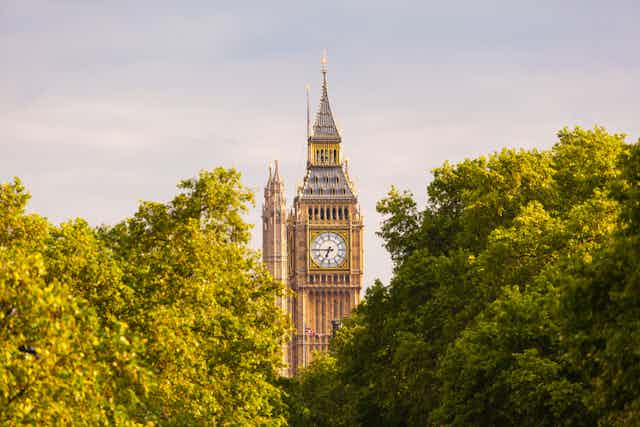The UK government has announced its business department will be split into separate departments for science, business and energy. The new Department for Energy Security and Net Zero, to give it its full name, represents the return of an energy and climate-focused department after a seven-year hiatus.
When then-prime minister Theresa May disbanded the Department of Energy & Climate Change (DECC) in 2016, in order to create the Department for Business, Energy & Industrial Strategy (BEIS), it was widely criticised as a signal that climate change was being downgraded in importance. Looking back over BEIS’s few years in existence, this was not necessarily the case.
There are, however, a series of quite subtle positives and negatives for climate policy associated with different departmental designs.
Visible issue, a focused leader
A smaller department with net zero in the title makes the issue more visible in Whitehall. It also means a secretary of state who can focus on climate change, and make arguments in cabinet, without their brief being diluted by other issues such as business. (Theresa May, Boris Johnson and Liz Truss did invite more junior climate change ministers working in BEIS to attend cabinet, but they were never secretaries of state leading a department.)

This also has implications for the scrutiny of climate change policy as parliamentary select committees and opposition shadow teams tend to follow the structure of government departments (though Labour has already created its own dedicated shadow net zero team).
So when BEIS was created, the relevant select committee was reshaped to include the business and industry brief, inevitably reducing the number of dedicated reports it could produce on energy and climate change.
However, policymaking in Whitehall frequently involves settling disputes between competing interests, which are often embodied in cabinet-level disagreements between departments. A larger department, including business and industry, arguably has more weight in government and in turn is likely to be allocated to a more high-profile secretary of state.
The danger of a smaller department, more focused on climate change, is that it gets drowned out in favour of more powerful voices within government, or unable to influence Treasury decisions.
Arguments in public or in house?
There are often trade-offs involved in climate policies, for example imposing some administrative burdens on businesses to drive emissions reductions or potentially reducing food production by encouraging the rewilding of farmland. The question of how to best set up government departments for climate policy partly comes down to where to site disagreements over these trade-offs.
Creating DECC involved moving the climate change brief out of the Department for Environment, Food and Rural Affairs (Defra). Combining it with the energy brief moved much of the adjudication of trade offs between decarbonisation, energy affordability and energy security “in house” rather than between different departments. This logic was essentially extended to include government policy to support business when BEIS was created.
In the pre-BEIS era, then-business secretary Vince Cable clashed publicly with then-energy secretary Chris Huhne over the stringency of a climate target (the fourth carbon budget). If there were any similar conflicts in the most recent round of this process, the adoption of the sixth carbon budget, they were settled within BEIS before it was announced.
Even if dealing with such questions within a larger department, rather than across the cabinet table, is sometimes helpful for climate policy outcomes, it does arguably mean the decision-making process can be less transparent.
Delivering net zero is also a cross-economy exercise. The climate governance arrangements the UK has had in place since 2008 are generally seen to have performed well but one of the ongoing issues has been the level of engagement outside of DECC/BEIS.
This is unlikely to be solved simply by redesigning departments. That’s why a recent government review called for a new Office for Net Zero Delivery to ensure a joined-up approach across government (not just in the department principally responsible for climate change).
Ultimately, former climate secretary Ed Davey is right to suggest that “machinery of government changes are only as good as the political will that lies behind them”. In Davey’s time at DECC, which was during the coalition government, policymaking was constrained by a prime minister increasingly concerned about energy bills and his backbenchers.
Michael Gove was seen to have reinvigorated environmental policymaking while at Defra through his approach rather than any departmental redesign. So Downing Street’s prioritisation of net zero and the actions of individual ministers will be key to targets being met.
The creation of the Department for Energy Security and Net Zero will therefore likely have both positive and negative implications for climate policy. The delivery of net zero will be determined much more by broader political factors.

